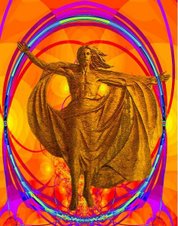Friday, April 27, 2012
Seinen manga
From Wikipedia, the free encyclopedia
(Redirected from Seinen)
Jump to: navigation, search
Not to be confused with Adult comics (????, also read as "seinen manga").
Question book-new.svg
This article does not cite any references or sources. Please help improve this article by adding citations to reliable sources. Unsourced material may be challenged and removed. (September 2010)
Part of a series on
Anime and Manga
Anime eye.svg
Anime
History • Longest series
Industry • Companies
ONA • OVA
Fansub • Fandub
Manga
History • Publishers
Scanlation • Dojinshi
International market
Longest series
Mangaka (List)
Demographic groups
Children
Shonen • Shojo
Seinen • Josei
Genres
Harem • Magical girl
Mecha • Yaoi • Yuri
Selected biographies
Shotaro Ishinomori
Rakuten Kitazawa
Koichi Mashimo
Katsuji Matsumoto
Leiji Matsumoto
Hayao Miyazaki
Go Nagai
Yoshiyuki Tomino
Shoji Kawamori
Toshio Suzuki
Osamu Tezuka
Year 24 Group
Fandom
Conventions (list) • Clubs • Cosplay
Anime music video • Otaku
Yaoi fandom
General
Omake • Terminology
Anime and Manga Portal
* v
* t
* e
Seinen manga (?????) is a subset of manga that is generally targeted at a 18–30 year old male audience, but the audience can be older with some manga aimed at businessmen well into their 40s. In Japanese, the word Seinen means "young man" or "young men" and is not suggestive of sexual matters. (The female equivalent to seinen manga is josei manga.)
It has a wide variety of art styles and more variation in subject matter, ranging from the avant-garde to the pornographic. Seinen manga is distinguished from shonen, or boys' manga, by having a stronger emphasis on realism. Because of the emphasis on storyline and character development instead of action, some seinen series are often confused with shojo, or girls' manga.[citation needed] This is especially true of seinen comedy series such as Chobits, and Chi's Sweet Home, or seinen drama such as Twin Spica. Other examples of seinen manga include: Gantz, Battle Royale, 20th Century Boys, Monster, Blame!, Ghost in the Shell, Akira, Berserk, Battle Angel Alita, Drifters and Elfen Lied. Rumiko Takahashi's Maison Ikkoku is sometimes classified as seinen, although this is disputed by some fans.
A common way to tell if a manga is seinen is by looking at whether or not furigana is used over the original kanji text: if there are furigana on all kanji, the title is generally aimed at a younger audience. The title of the magazine it was published in is also an important indicator. Usually Japanese manga magazines with the word "young" in the title (Weekly Young Jump for instance) are seinen. Other popular seinen manga magazines include Ultra Jump, Afternoon, and Big Comic.
Subscribe to:
Post Comments (Atom)







No comments:
Post a Comment